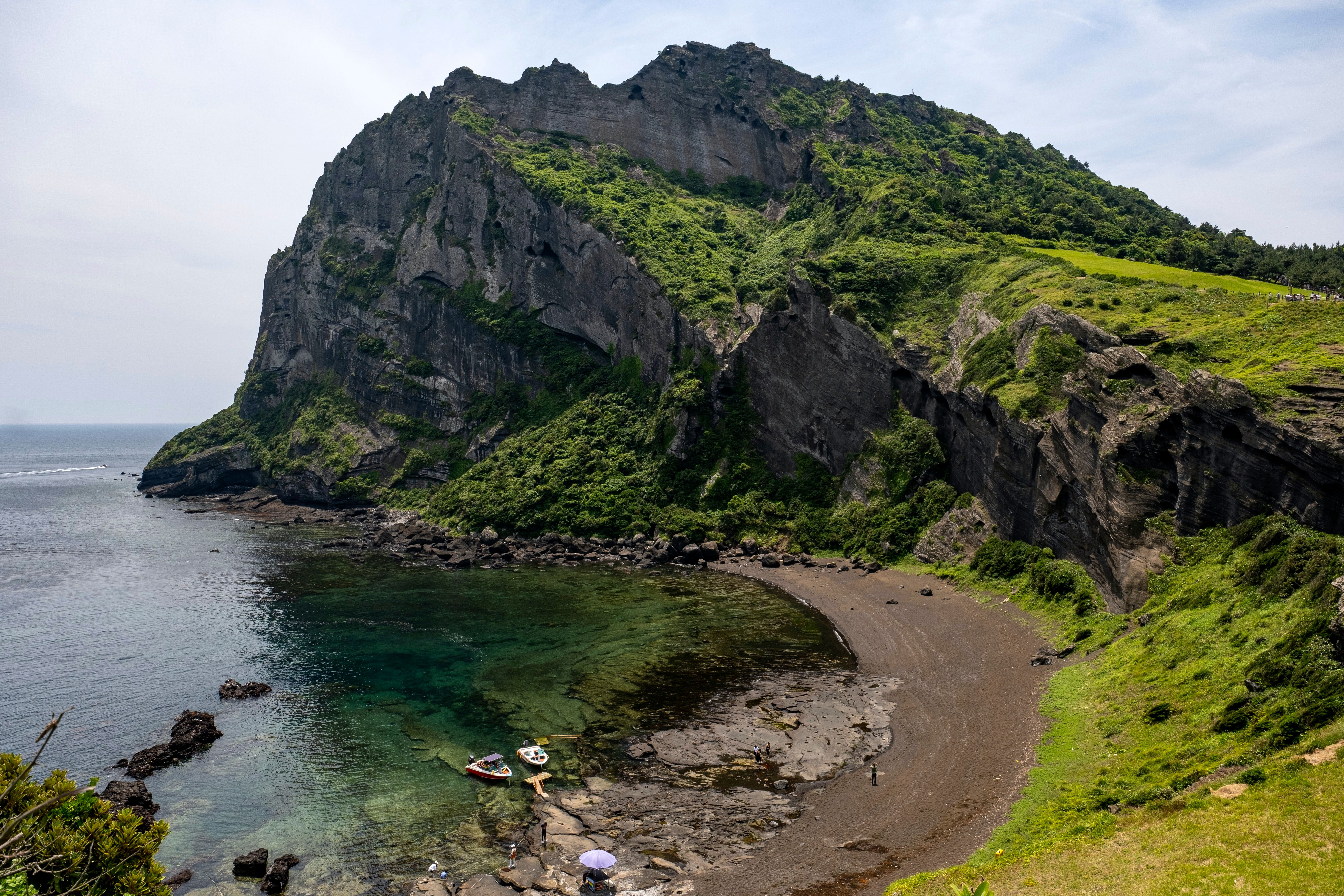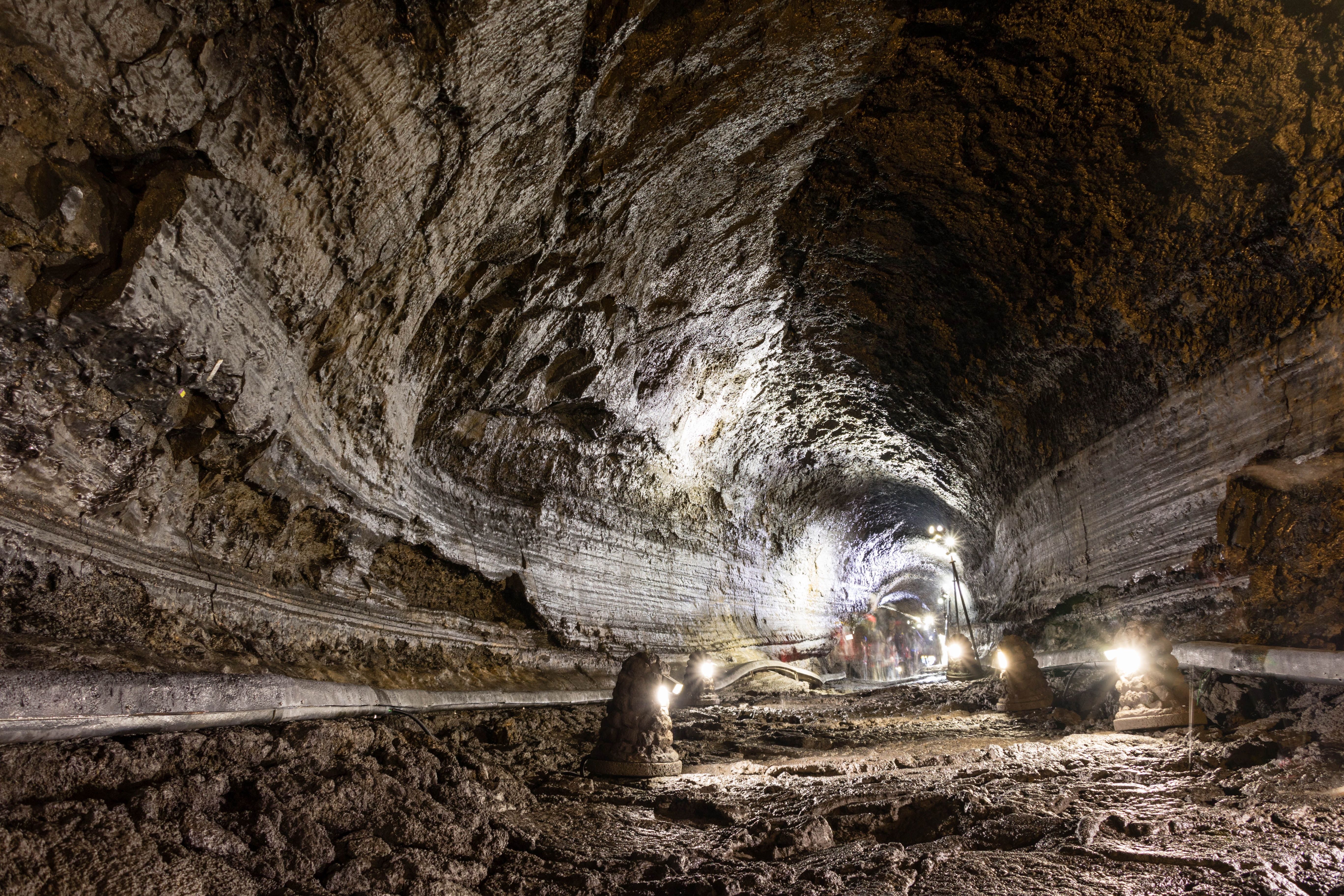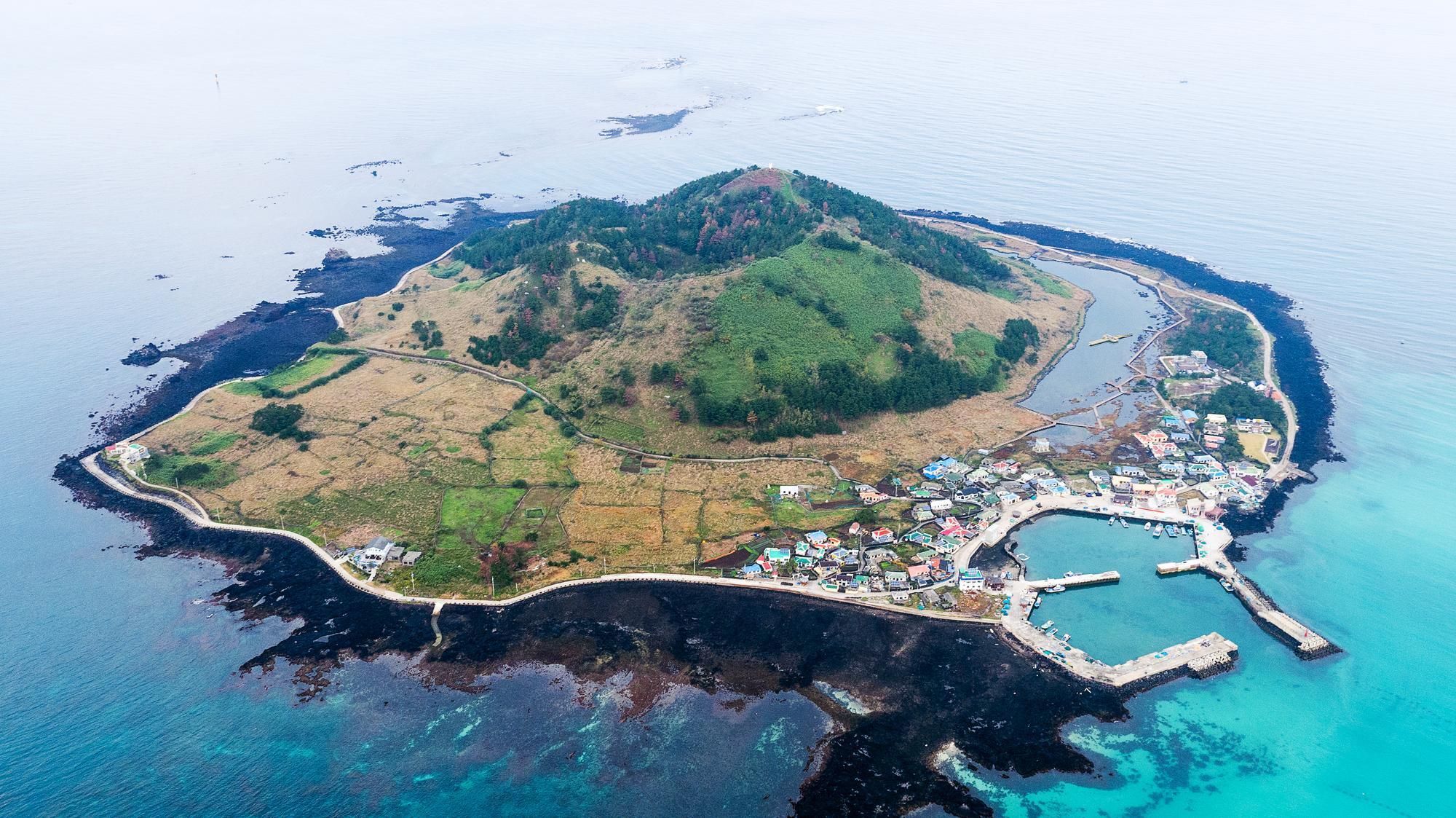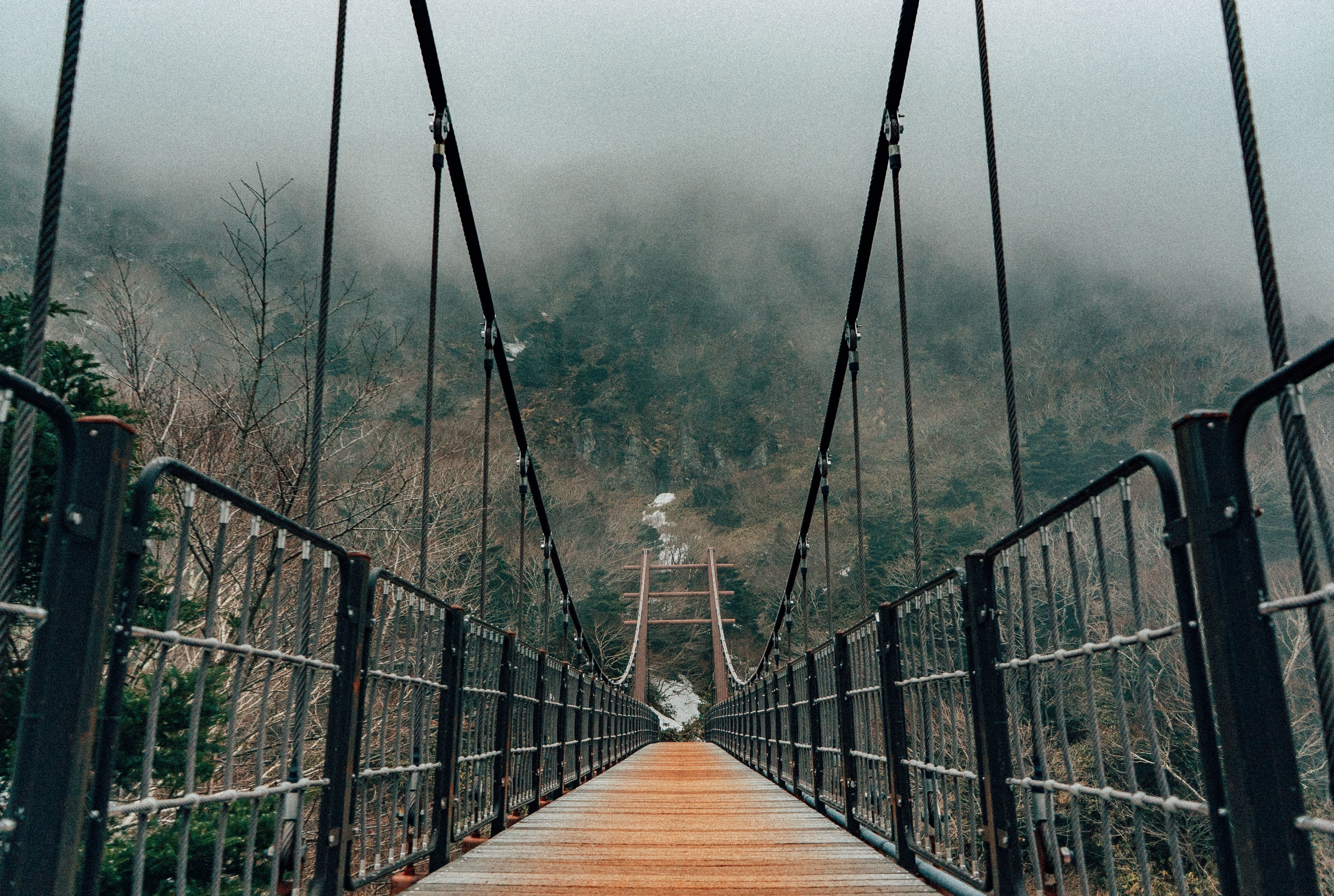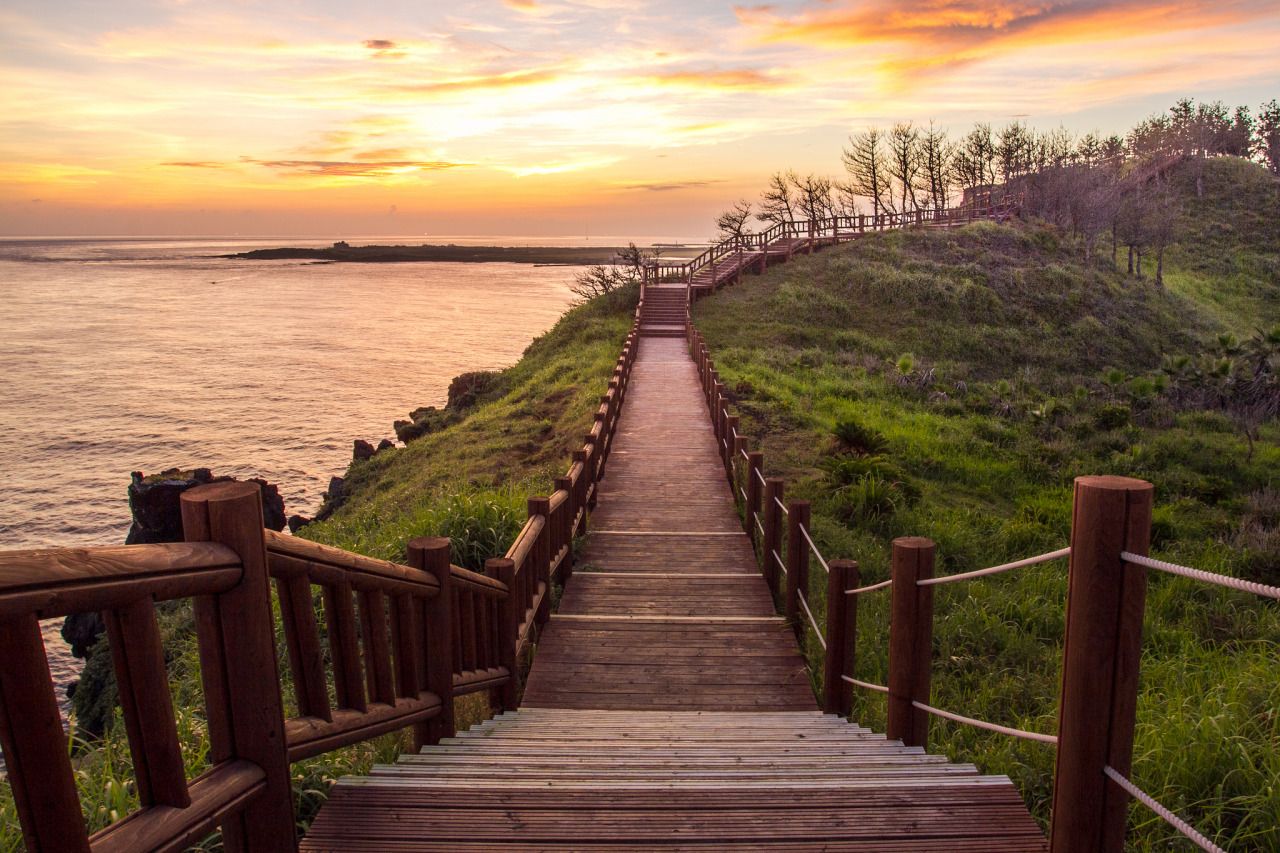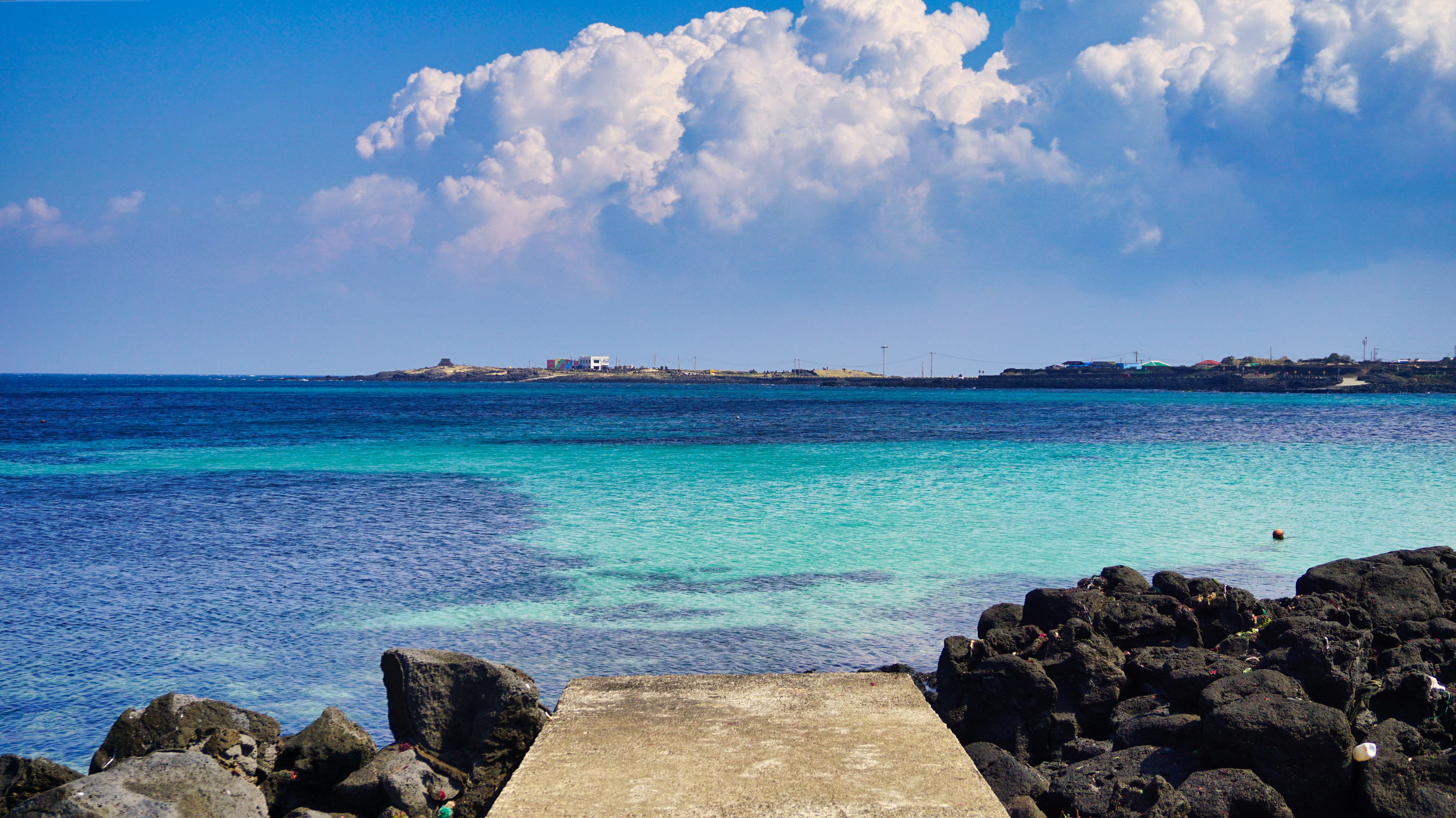About Jeju
Jeju Island is the largest volcanic island in Korea and it has a mild oceanic climate throughout the year with the smallest annual temperature range in South Korea. Officially called Jeju Special Self-Governing Province, this best tourist destination boasts mild weather, as well as scenic beauties of beaches, waterfalls, cliffs and caves. The island is 73km wide and 31km long with a total area of 1,848.85㎢. Jeju is the largest island in South Korea.
Mt. Halla rises in the center of Jeju to 1950m above sea level. The rest of the island slopes down from its summit and is covered with dark gray volcanic rocks and volcanic ash soil. Seongsan Ilchulbong Peak with breathtaking views is also one of the most scenic areas, and Manjanggul Cave, the world’s longest lava tube has been registered as a UNESCO World Natural Heritage. Meanwhile, Jeju has recently won the Global Geopark certificate, and also has been selected as the New7Wonders of Nature.
Jeju Island is a focal point international affairs and offers many kinds of recreation together with vistas, and you can enjoy hiking, bike riding, paragliding, scuba diving, windsurfing, hunting, horseback riding, swimming in the ocean, and sightseeing boat trips. Jeju has a wide variety of local fruits and foods, grilled saltwater fishes with seasoning, rice porridges with abalone.
Further detailed information is available at the website of http://english.jeju.go.kr
World’s First Recipient of UNESCO’s Triple Crowns
Jeju Island is well known for its abundance of scenic natural wonders and cobalt blue sea. The island was designated as geoparks by UNESCO and is the world’s first recipient of UNESCO’s triple crowns in the fields of nature and science – Biosphere Reserve (2002), World Natural Heritage (2007) and World Geoparks (2010).
